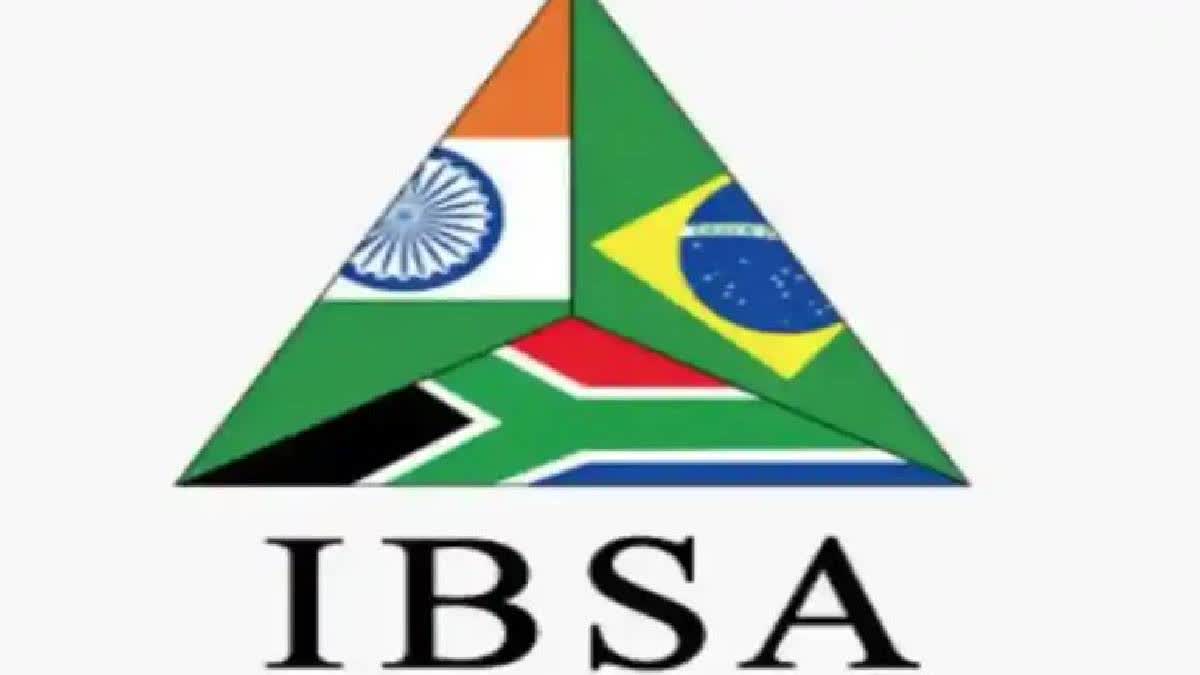New Delhi: In a call to action, the foreign ministers of India, Brazil and South Africa (IBSA) have united in advocating for the inclusion of the provisions of the Global Biodiversity Framework (GBF) in multilateral environmental agreements, aligning with the foundational principles of the Rio Declaration on Environment and Development.
“The Ministers called for the implementation of multilateral environmental agreements guided by the principles of Rio Declaration on Environment and Development,” a joint ministerial declaration issued following a standalone meeting of the IBSA foreign ministers held on the sidelines of the G20 Foreign Ministers’ Meeting in Rio de Janeiro this week stated.
The standalone meeting was attended by India’s Minister of State for External Affairs V Muraleedharan, Brazil’s Minister of Foreign Affairs Mauro Vieira and South Africa’s Minister of International Relations and Cooperation Grace Naledi Pandor.
“Emphasising that the Kunming-Montreal Global Biodiversity Framework, adopted at the 15th Conference of the Parties to the Convention on Biological Diversity in December 2022, implemented as per national circumstances, the Ministers recalled the importance of ensuring adequate, affordable, accessible and predictable financial resources as well as transfer of appropriate and affordable technologies, especially from the developed countries to the developing countries for the conservation and sustainable use of biodiversity, as well as promoting the contributions of indigenous peoples, and local communities,” the declaration further stated.
Due to increasing awareness of the biodiversity crisis, there was pressure from citizens and investors around the world to take action to address the interlinked crises of climate change and biodiversity loss. There is already an international agreement for climate change, the Paris Agreement under the auspices of the United Nations Framework Convention on Climate Change, but until the development of the Convention on Biological Diversity (CBD), there was no similar framework for actions to protect biodiversity to be coordinated internationally.
The Kunming-Montreal Global Biodiversity Framework (GBF) was adopted during the 15th meeting of the Conference of the Parties (COP 15) to the UN Convention on Biological Diversity held in Montreal in December 2022 following a four-year consultation and negotiation process. A total of 196 countries are signatories to the GBF which contains four global goals called Kunming-Montreal Global Goals for 2050 and 23 targets called Kunming-Montreal 2030 Global Targets.
The first of the four goals, titled ‘Protect and Restore’ states that the integrity, connectivity and resilience of all ecosystems should be maintained, enhanced, or restored substantially increasing the area of natural ecosystems by 2050. It calls for a halt to human induced extinction of known threatened species and, by 2050, the extinction rate and risk of all species should be reduced tenfold and the abundance of native wild species should be increased to healthy and resilient levels. It also states that the genetic diversity within populations of wild and domesticated species should be maintained, safeguarding their adaptive potential.
The second goal titled ‘Prosper with Nature’ states: “Biodiversity is sustainably used and managed and nature’s contributions to people, including ecosystem functions and services, are valued, maintained and enhanced, with those currently in decline being restored, supporting the achievement of sustainable development for the benefit of present and future generations by 2050.”
The third is titled ‘Share Benefits Fairly’. It states that by 2050, the equitable sharing of both monetary and non-monetary advantages arising from the utilisation of genetic resources, digital sequence information related to genetic resources, and relevant traditional knowledge, including with indigenous peoples and local communities, will be substantially increased. This will contribute to biodiversity conservation and sustainable utilisation, aligning with established international access and benefit-sharing agreements and ensuring the appropriate protection of traditional knowledge linked to genetic resources.
The fourth goal titled ‘Invest and Collaborate’ calls on all parties, with a special focus on developing nations, particularly the least developed countries, small island developing states, and those undergoing economic transitions, to ensure the comprehensive realisation of the Kunming-Montreal GBF. This entails securing ample means of implementation, encompassing financial resources, capacity-building, technical and scientific cooperation, and technology access and transfer. The goal is to progressively narrow the biodiversity finance gap, currently estimated at $700 billion per year, and to harmonise financial streams with both the Kunming-Montreal GBF and the 2050 Vision for biodiversity, ensuring equitable accessibility for all.
The 23 targets are categorised into three areas: reducing threats to biodiversity; meeting people’s needs through sustainable use and benefit-sharing; and tools and solutions for implementation and mainstreaming.
